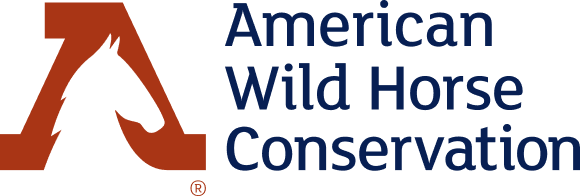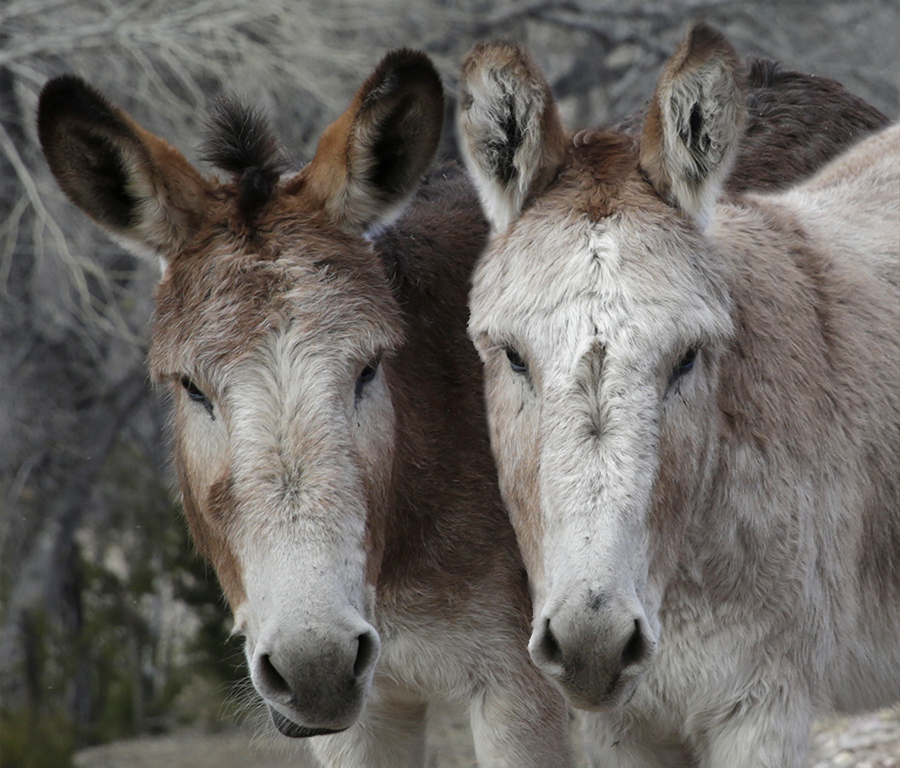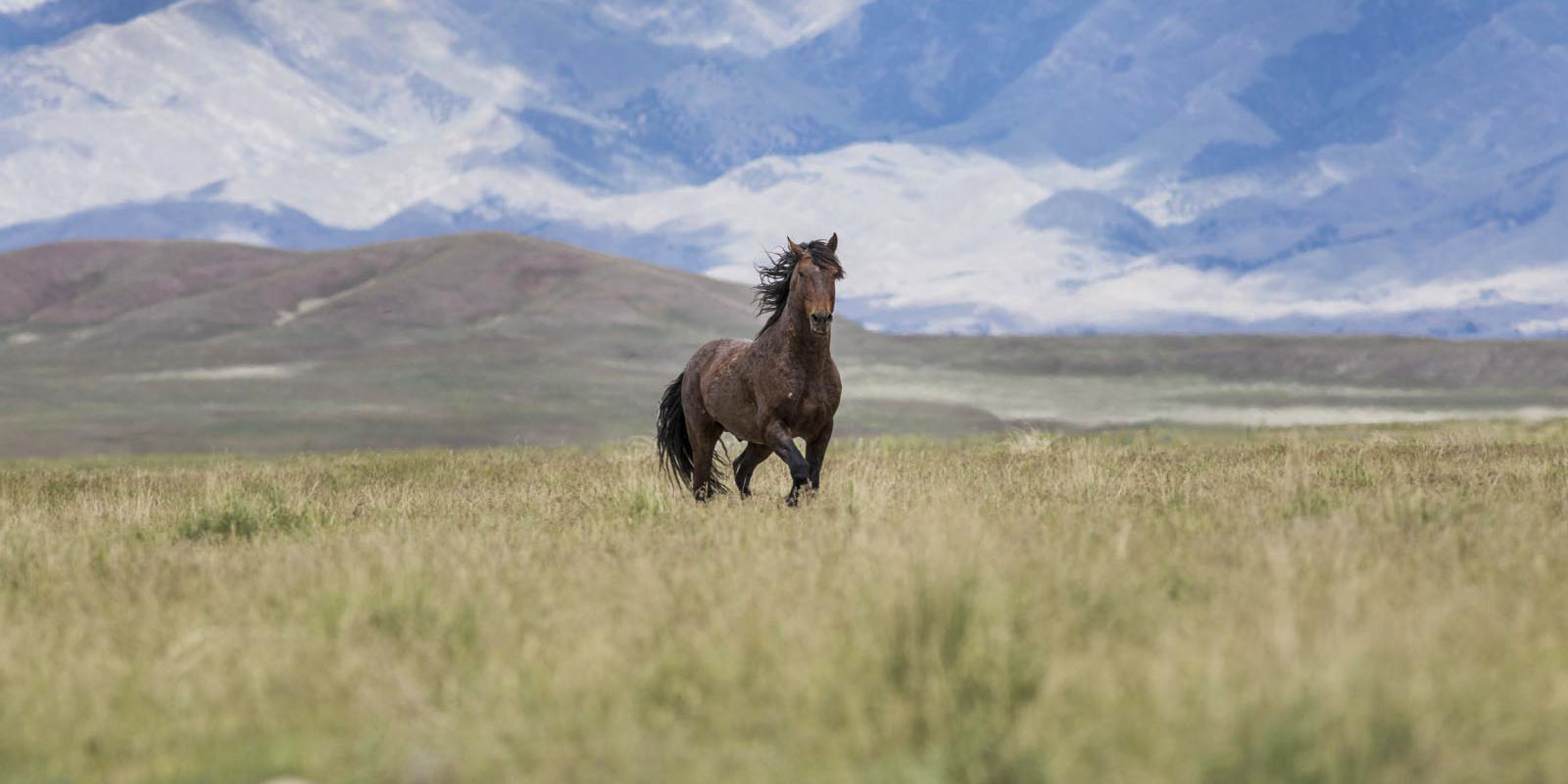By Laurie Ford, AWHC Volunteer
(May 8, 2023) While humans often have great difficulty when it comes to the act of forgiveness, burros are quite the opposite. They never consider themselves as being the ones in the wrong, but they are usually willing to forgive those who are - humans.
It is not that they don’t remember - for burros have exceptional memories - but they prefer to assess the situation at hand and forgo the past in anticipation of a brighter, kinder future. This is by far the easier route as carrying around all that old baggage can be exhausting! Being on “donkey time,” it may take days or even months, but once a burro makes their decision, it’s up to their new owner to follow through and build that trust. The patience it takes to finally draw out the loveable, forgiving beings that they are is well worth the wait, and, as humans, we can learn much from our long-eared friends in the process.
Thanks to this amazing ability that burros have, if given the chance they will move on - from even the most horrendous situations - and gratefully embrace a new and blissful life.
We all love stories with happy endings. There is a way that every one of us can help to make this possible through adoption, rescue, sponsorship, and volunteering. I have chosen to do all four. But it is the burros who I rescued and who are now a part of my family that have brought me such happiness in the final chapter of my own life as well as their own.
I don’t know all the details about the past of my rescue burros except what snippets reveal about the trauma and abuse they have survived. It might be in their appearance, a wariness of any tool with a handle or a look in their eyes. Each one possesses their own unique dark story, yet they all share a common happy ending - living out their lives in a safe and loving home where they no longer must wonder when the bad things are going to start again.
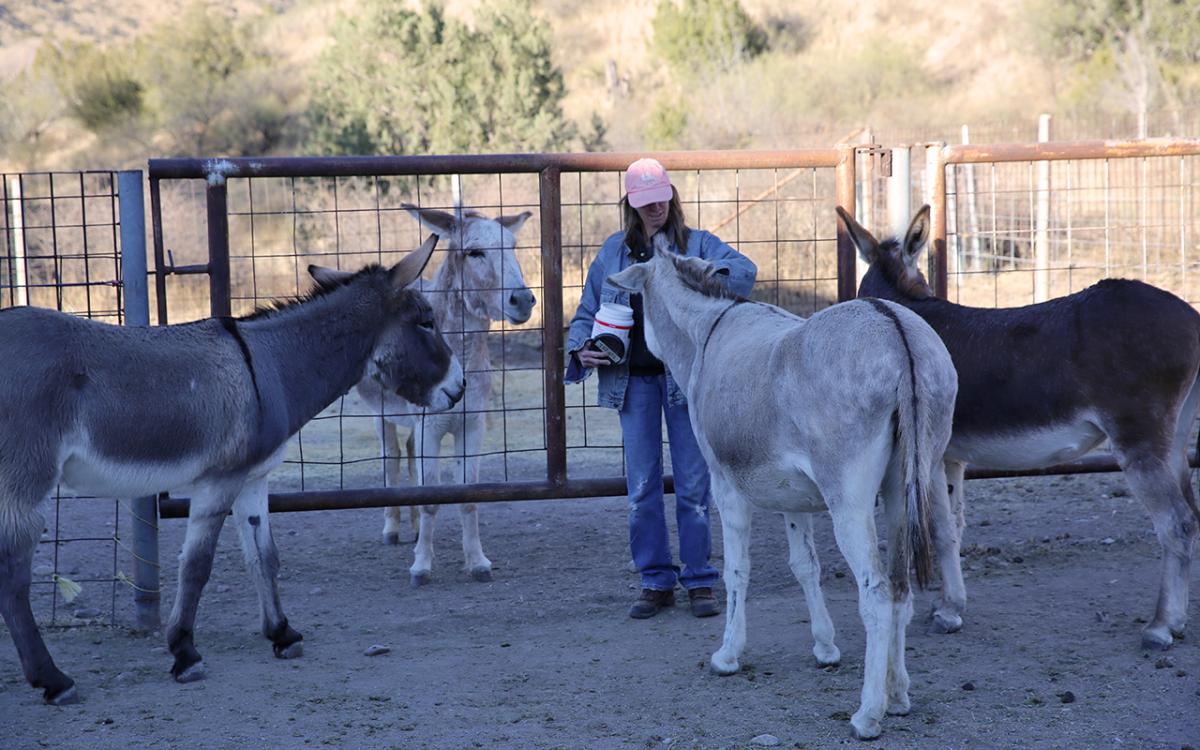
Jeff arrived when he was barely 3 years old after being rescued from the kill pens. The rope burns on his swollen knees never go away, and he spends a great deal of time lying down. Here in the west a different breed of cowboy exists - one who uses burros, rather than their own cows, for roping practice. The problem is burros being the intelligent, thoughtful creatures that they are, quickly learn that if they don’t run, they won’t get yanked to the ground. So once the rope encircles their neck or feet, they simply stand rooted to the ground. At this point, they are typically sent to a sale barn and on to slaughter.
Cat was abandoned and found wandering aimlessly between public and private lands. Here in New Mexico, with vast amounts of wilderness and forest, horses and burros are routinely cast off to fend for themselves. I suppose this is better than being slaughter bound, but many are incapable of adapting to survival on their own and die.
Mommy came from a small herd of wild burros that had lived in the surrounding area for decades. Locals would occasionally go in and cull the herd - usually to acquire a pet for the kids - which kept the herd size around 20. When a grazing allotment changed hands, the new owner did not want to share any forage with these beloved burros and rounded them up. By the time I discovered what had happened, they had been hauled to a roping event and sold out of the back of the stock trailer. Despite plastering flyers everywhere offering to buy back the burros for double what was paid, the only one I could locate was Mommy. Six months later, she gave birth to a “dummy baby” that she rejected. It did not survive most likely because high levels of stress-induced cortisol passed to the fetus through the bloodstream disrupting brain development and fetal growth.
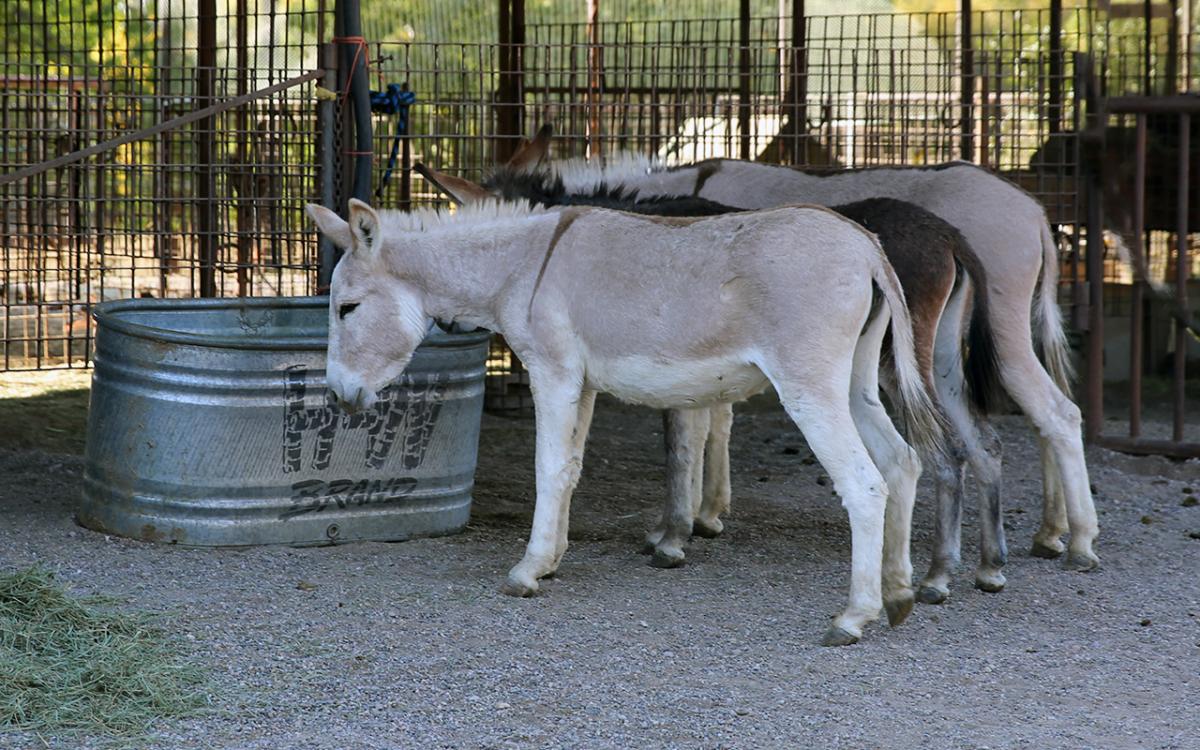
For over a decade, Ricky lived with an old paint mare in a field with almost no human contact. When the owner passed away, they were sent to a rescue where he needed anesthesia to get his hooves - curled up like elf shoes - trimmed. No one could approach Ricky, so I offered to work with him. Almost three years later, he is still here.
I found Andy in a tiny pen with mud up to his knees and no food or water. He looked like at one time he had been hit by a vehicle. The owner claimed he had to keep him confined because he kept escaping to ransack the neighbor’s barns and lick the salt thrown out on icy roads. To this day, he has not tried to escape once from my fields - even when the gate is left wide open.
And then there is Braveheart and Mr. K., whose reunion was joyous because burros truly do not forget friends and family. Braveheart was one of three jennies I had bought after she was rounded up in the Kaibab National Forest by the USFS and sold on Craig’s list for $25.00. Three years later, a woman asked me to take Mr. K because she was no longer able to care for him. I soon discovered he came from the same herd as Braveheart. On occasion, the two, who are best friends, cannot resist the urge to be wild and free again and crawl under the fence to run off into the forest and up the mountainside. But come sunset, they always return home.
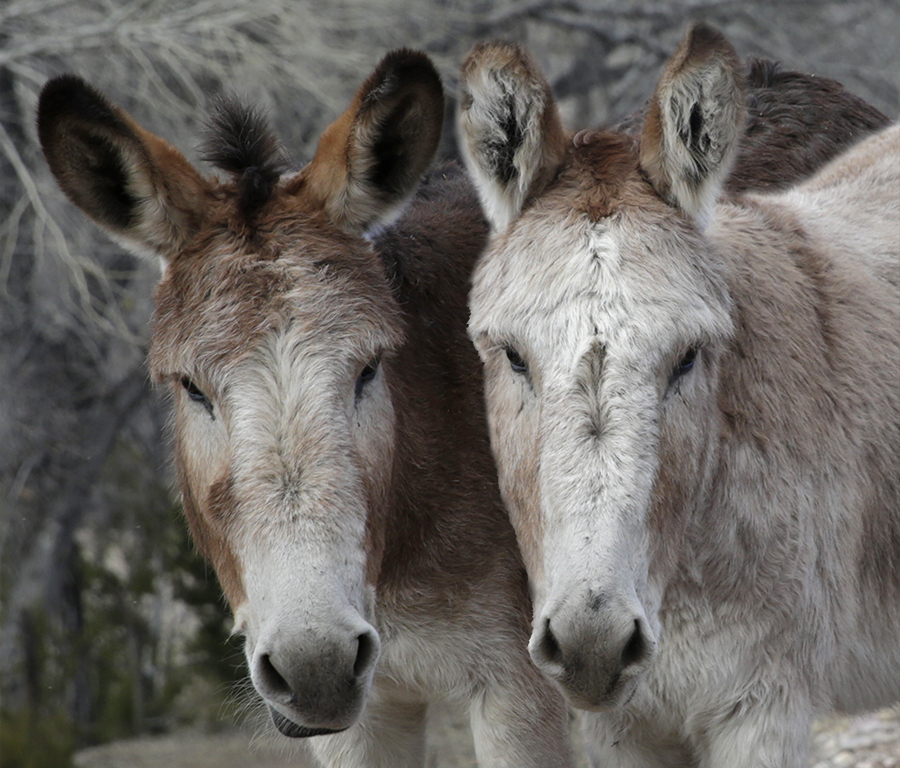
Burros do not like uncertainty. Now they know what is coming - food, shelter, love, and the occasional treat - and they never forget who it is that made this happy ending possible.
Their happy ending has contributed to my own happiness and every day I ask myself who is the luckiest - the burros or me?
Laurie Ford is a wildlife photographer and burro lover extraordinaire. She lives in New Mexico.
